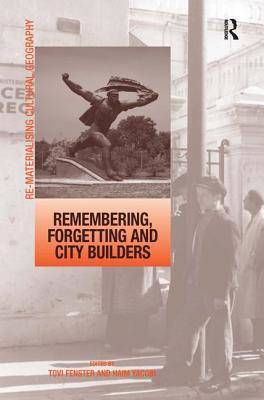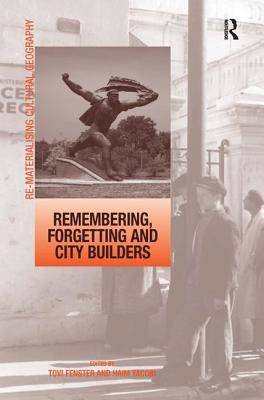
- Afhalen na 1 uur in een winkel met voorraad
- Gratis thuislevering in België vanaf € 30
- Ruim aanbod met 7 miljoen producten
- Afhalen na 1 uur in een winkel met voorraad
- Gratis thuislevering in België vanaf € 30
- Ruim aanbod met 7 miljoen producten
Zoeken
Omschrijving
Remembering, Forgetting and City Builders critically explores how urban spaces are designed, planned and experienced in relation to the politics of collective and personal memory construction. Bringing together case studies from North America, South Asia, Eastern Europe and the Middle East, the book analyzes how contested national, ethnic and cultural sentiments clash in planning and experiencing urban spaces. Going beyond the claim that such situations exist in many parts of the world because communities construct their 'past memories' within their current daily life and future aspirations, the book explores how the very acts of planning and urban design are rooted in the existing structures of hegemonic power. With contributors from the fields of architecture, geography, planning, anthropology and sociology, urban studies and cultural studies, the book provides a rich, interdisciplinary view into the conflicts over memory and belonging which are spatially expressed and mediated through the official planning apparatus.
Specificaties
Betrokkenen
- Auteur(s):
- Uitgeverij:
Inhoud
- Aantal bladzijden:
- 224
- Taal:
- Engels
- Reeks:
Eigenschappen
- Productcode (EAN):
- 9781409406679
- Verschijningsdatum:
- 28/08/2010
- Uitvoering:
- Hardcover
- Formaat:
- Genaaid
- Afmetingen:
- 157 mm x 239 mm
- Gewicht:
- 453 g

Alleen bij Standaard Boekhandel
+ 108 punten op je klantenkaart van Standaard Boekhandel
Beoordelingen
We publiceren alleen reviews die voldoen aan de voorwaarden voor reviews. Bekijk onze voorwaarden voor reviews.











